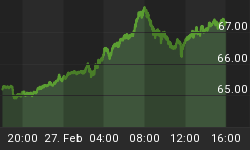Dollar bulls who wanted to see growth in the labor market and an increase in consumer spending received the latter in the form of a better than expected retail sales report and a jump in consumer sentiment on Friday. The bullish response by investors to the friendly retail and consumer confidence numbers is a sign that speculators believe the Fed has enough evidence to hike interest rates sooner than expected.
The U.S. Dollar soared to the upside to finish the week sharply higher after the government reported better than expected retail sales in November. The increase was more than twice pre-report estimates. The Greenback received an additional boost after the University of Michigan reported a greater than expected uptick in consumer confidence.
The EUR USD turned the weekly main trend down today when it crossed the main bottom at 1.4625. The current break has already tested 50% of the 1.4045 August bottom to the 1.5144 November top at 1.4594. A further break to 1.4465 is likely if downside momentum continues to build.
Besides signs the U.S. economy is improving, the Euro was pressured all week by credit rating downgrades in Dubai, Greece, Spain and Portugal.
The GBP USD finished the week lower. The short-term range is 1.5706 to 1.6878. The retracement zone of this range at 1.6292 to 1.6254 was tested this week and held. Most of the damage done this week occurred on the daily chart.
This week the Bank of England agreed to leave interest rates unchanged as well as its quantitative easing program. With Third Quarter GDP on life-support, the BoE feels that the economy needs stimulus to help it turn the corner. The major concern for British Pound traders is the growing budget deficit and the ability to pay sovereign debt. Traders are worried a credit rating service will downgrade U.K. debt. This is speculation at this time, however.
After starting the week under selling pressure because of an increase in demand for higher risk, the USD JPY was able to rebound on Friday following the release of the bullish U.S. Retail Sales Report. The Yen also faced additional pressure this week from a report showing Third Quarter GDP grew smaller than estimated, Core machinery orders fell, consumer confidence was down and the government approved a 7.2 trillion Yen stimulus package. The unwinding of the carry trade could put additional pressure on the Japanese Yen next week.
The Swiss National Bank announced this week that it would leave interest rates unchanged while signaling an end to its bond purchasing program. It also left open the door for more interventions should the Swiss Franc appreciate too much. The SNB feels that with the economy just now pulling out of the recession, it remains too fragile to begin hiking interest rates. Technically, the main trend turned up on the weekly chart when the USD CHF crossed the last main top at 1.0337.
The USD CAD finished a little better this week, but most of the action was spent inside of a pair of 50% price levels at 1.0598 to 1.0537. The Bank of Canada decided this week to leave interest rates unchanged while calling the currency too expensive. The BoC has expressed concern previously about the Canadian Dollar's value and its negative effect on exports. Speaking of exports, Canada's trade balance showed a surplus last month mainly because of the surge in gold and silver. This news helped underpin the Canadian Dollar late in the week.
The AUD USD closed the week lower. The news was mixed this week. Bullish news included a better than expected employment report and Chinese export number. Falling demand for higher yielding assets and a stronger Dollar helped put a lid on strong rallies. Technically, the Aussie has just completed a 50% correction of the .9321 to .9014 range at .9167.
A change in tone from dovish to hawkish by the Reserve Bank of New Zealand helped give the NZD USD a much needed boost this week. The market faltered on Friday after the bullish U.S. Retail Sales Report, however. The lack of follow-through to the upside following the friendly central bank announcement is not a good sign for the bulls. A decrease in demand for higher yielding assets next week could erase all of this week's gains.















